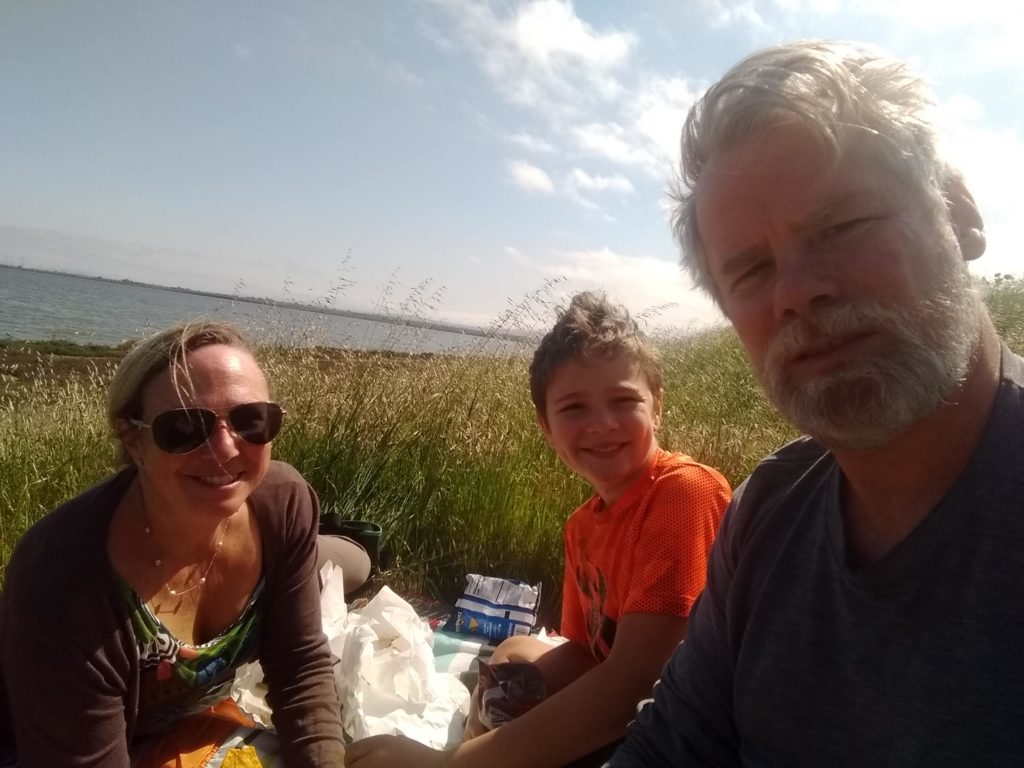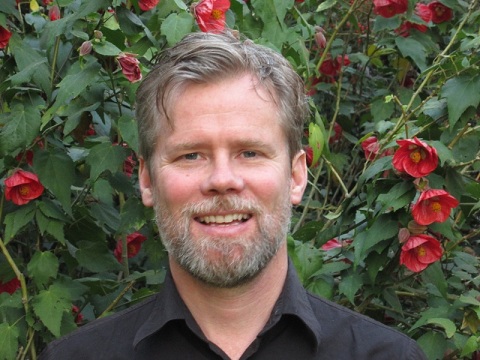Spring in Northern California has sprung. It had been raining for weeks until the last few days. The end of the rainy season couldn’t have come any sooner. It had been a layer of gloom over an already challenging period of pandemic induced isolation.
Last weekend, I biked out to the San Francisco Bay on the Stevens Creek trail, which runs right by my house. This is one of those sure fire everyday pleasures, but this was no ordinary day. The lack of pollution made the visibility astoundingly clear. Once I got within eye shot of the bay, I could see the finest of detail on the hills across the water. Little white houses, powerlines, verdant canyons, and more.
I biked a couple miles more to one of my regular stops, a small peninsula by an inlet to the wetlands. It was positively teeming with bird life. I had never seen so many birds, so many varieties, and such varied behavior. There were ducks, egrets, swallows, gulls, geese, and more. They were resting, feeding, flying, hunting, and migrating. One swallow hovered over the water line near my perch for a couple minutes, going back and forth looking for a tiny fish, then diving straight down like a dart when an opportunity appeared.
I wondered to myself later why I know so many brand names and so few bird names. What lexicon matters to me? Wouldn’t I be better off allied with the birds?
I’ve experienced over ten years of springs here, but never saw so much life so clearly. I wondered to myself, is this just a beautiful spring day or something more? Has the lessened human activity invited back more wildlife? A small pack of coyotes were seen recently on a street in San Francisco’s North Beach neighborhood howling at the moon. If that isn’t a sign, I don’t know what is.
How about this? Driving home from my still allowed allergy shots, I saw grass growing through cracks in Central Expressway’s asphalt for miles. That’s a major thoroughfare right down the middle of Silicon Valley. I could hardly believe my eyes. It was beautiful in its own strange way, bright green veins running down the black tarmac’s long, upturned arms.
My neighborhood has also come alive. My street has become positively park like. Walkers, joggers, bikers, and strolling families now dominate the street while keeping a safe distance. The exchanges in my Cool Block group have thickened, helped by our neighborhood Slack channel. My family has given meals, flour, school supplies, and time running errands for neighbors. We sent an older neighbor brisket and matzoh ball soup to help her celebrate Passover in isolation. We’ve gotten more in return — kugel, sourdough bread, pandebono, chocolate banana bread, fertilizer, and more. And we’ve given together as neighbors more than ever, mostly to the local food bank.
Our family life is also better than ever for a simple reason — we’re spending more time together. Meals have become especially important. We’re keeping our spirits up by eating our favorite foods. We cook together more. We biked to the bay for a picnic for the first time ever. Why haven’t we done that before? We’ve also established a new, comforting routine as I outlined in my last post.
Family life might also be better because I’m better. While far from perfect, I’m more patient and present, more tuned into what my wife and son are feeling. I’m letting more things slide for others and myself. Meditating has helped, but also the realization that if there were any time to pull together and give each other a break, this is it.
Yet, April is the cruelest month as T. S. Eliot wrote in his epic modernist poem, “The Waste Land.” Last week I drafted a note to Shareable’s donors that closed with this:
Perhaps, instead, this is a time to take stock, reflect, listen, be as present as possible in the now, and focus care on those nearby — our family, friends, and neighbors.
I got an email with shocking news just before sending it — a beloved cousin took his life earlier that day. We thought him a rock. Indeed, he was a pillar of his extended family and professional community. In fact, we were in the middle of planning a family reunion at his house this summer. It would have been shocking in any case, but these details added extra weight to an already heavy loss.
I learned at a memorial held on Zoom a few days later that he was overwhelmed by a devastating career setback triggered by the pandemic. He felt he had let his family and clients down. His immediate family rallied around him when depression set in. The loss was not from lack of care. His family is very loving.
This mix of joy and loss is hard to reconcile. All of life’s most salient qualities have been compressed in the present. I feel sure this crucible of crisis will change me, perhaps profoundly.
Moreover, my note underestimated how widespread suffering is and how urgent it is that we rally around each other. The shocking loss got me wondering, how serious is this? It’s deadly serious. A convergence of crises has crashed into our everyday lives triggering mass grief and existential suffering. Calls to suicide prevention hotlines are up by 800 percent.
Former Congressman Patrick J. Kennedy, a mental health advocate, had this to say about the crisis:
Every single American has been faced with a mental health issue in this COVID crisis… not just a family member, but themselves.
A friend wrote to me on Facebook, “I’m lost.” I feel a bit lost too. Who wouldn’t? But I also have a North Star. I don’t think the pandemic is a portal as novelist Arundhati Roy posited in a widely circulated essay. That feels too ethereal to me right now. A house on fire is not a portal. For me, the pandemic is an urgent call to care. It’s a time to relax differences, bring everyone into a circle of support.
If you hear this call, it’s time to rally your people if you haven’t already. If you don’t know what to do, get the help you need to help others. I feel what’s required is beyond what I know how to do today, but I need to learn to do it first thing tomorrow. If I do this, I could save a life. If you do this, you could save a life. If we all do this, we could save ourselves.
Dedicated to my cousin and his family. I love you.
##
This post is part of Neal Gorenflo’s year long experiment on living locally (#LocalYear). Follow his journey by reading the other posts in his series:
- How we can avert our society’s drift toward disaster by charting a different course
- My uneven first steps in #LocalYear
- Knocking doors for Cool Block with my son Jake
- Despite jitters, I succeed in hosting a Cool Block introductory gathering
- Time to give my #LocalYear teeth: 5 commitments to spur a more local lifestyle
- Things got a whole lot more local than I expected due to coronavirus
- My new pandemic routine
- My #LocalYear progress so far









